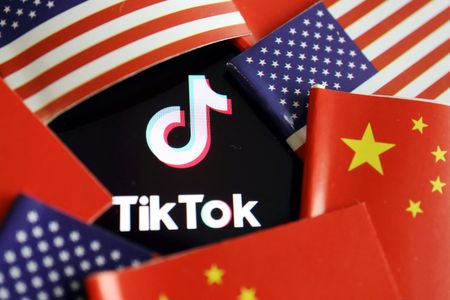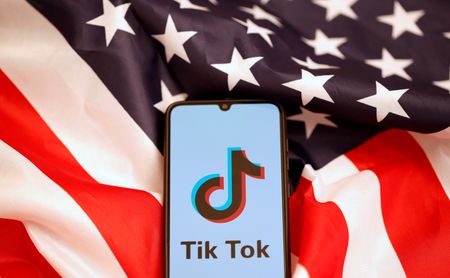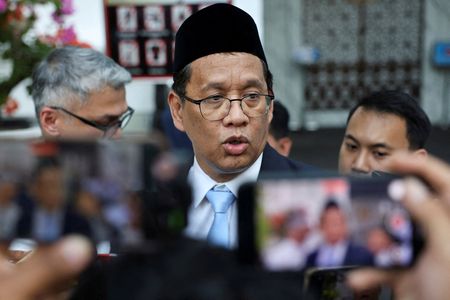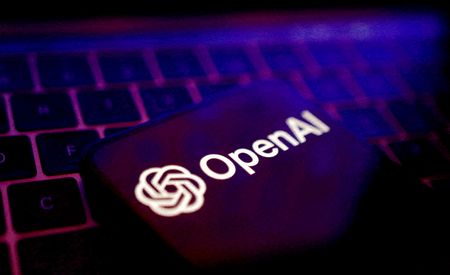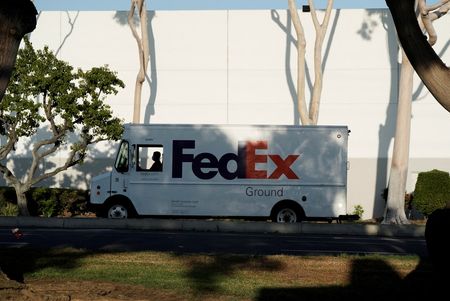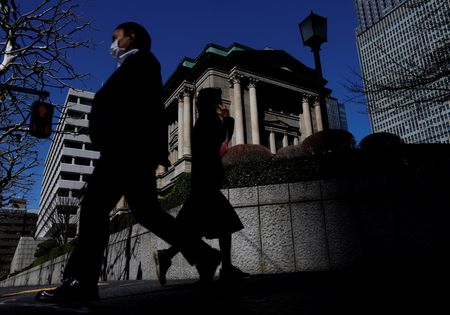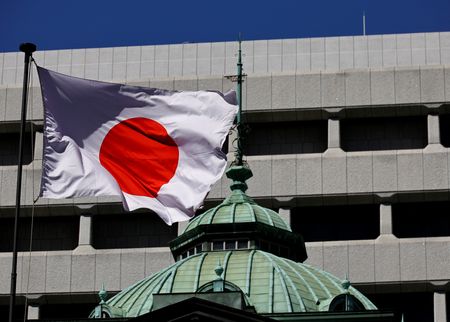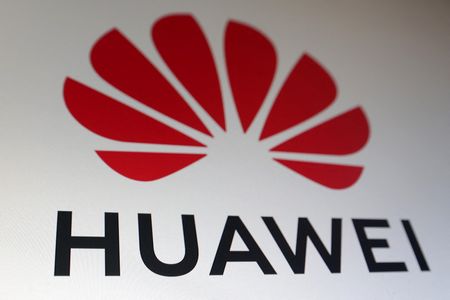By Trevor Hunnicutt
WASHINGTON (Reuters) -U.S. President Donald Trump said he and Chinese President Xi Jinping made progress on a TikTok agreement and would meet face-to-face in six weeks in South Korea to discuss trade, illicit drugs and Russia’s war in Ukraine.
The two sides appeared to lower tensions during the first call in three months between the leaders of the two superpowers, but it was not immediately clear that the call had yielded the expected firm agreement over the fate of the popular short-video app.
The leaders did agree to further talks on the sidelines of the Asia-Pacific Economic Cooperation forum that starts on October 31 in Gyeongju, South Korea, and that Trump would visit China early next year, the U.S. president said. He also said Xi would come to the U.S. at a later date. Reuters previously reported that the two sides were planning such a meeting.
“We made progress on many very important issues including Trade, Fentanyl, the need to bring the War between Russia and Ukraine to an end, and the approval of the TikTok Deal,” Trump wrote on social media.
“The call was a very good one, we will be speaking again by phone, appreciate the TikTok approval, and both look forward to meeting at APEC!” Trump wrote.
Beijing’s final approval of a framework deal reached by the two sides earlier this week is one of the hurdles Trump needed to clear to keep TikTok open. Congress had ordered the app shut down for U.S. users by January 2025 if its U.S. assets weren’t sold by Chinese owner ByteDance.
Trump’s statement did not detail what such progress was and China’s statement made no reference to any agreement on TikTok specifically.
Trump had signaled multiple times this week that a deal might be forthcoming.
“On TikTok, Xi said China’s position is clear: the Chinese government respects the will of firms and welcomes companies to conduct business negotiations on the basis of market rules to reach a solution consistent with Chinese laws and regulations while balancing interests,” according to the meeting summary in Xinhua.
Trump and Xi’s phone call began at 8 a.m. Eastern time (1200 GMT), a U.S. official said, and the first statements from China followed just shy of three hours later.
“Beijing is banking on optics and time, while Washington is chasing a TikTok headline and a summit, and hopes, I think, for more wins later,” said Craig Singleton, a senior fellow at the Foundation for Defense of Democracies, a think tank. “I think the Chinese are very happy with the current dynamic.”
The White House did not respond to a request for comment.
NATIONAL SECURITY CONCERNS
Trump has declined to enforce the TikTok law while his administration looks for a new owner, but also because he worries a ban on the app would anger TikTok’s huge user base and disrupt political communications.
“I like TikTok; it helped get me elected,” Trump said during a press conference on Thursday. “TikTok has tremendous value. The United States has that value in its hand because we’re the ones that have to approve it.”
Key questions about the deal remain. It’s not clear the precise ownership structure of the company, how much control China will retain or whether Congress will approve.
The deal would transfer TikTok’s U.S. assets to U.S. owners from ByteDance, Reuters has reported. Sources familiar with the deal said U.S. TikTok would still make use of ByteDance’s algorithm.
That arrangement worries lawmakers who are concerned that Beijing could spy on Americans or conduct influence operations through the app. China has said there is no evidence of a national security threat posed by the app.
VEXING ISSUES
But the TikTok issue is just one of many issues between the world’s two biggest economies.
Since retaking office in January, Trump sharply hiked tariffs across the board and singled out China’s export-oriented economy with especially punitive rates. That prompted China to respond in kind. Tariff rates on both sides of the Pacific rose to triple-digit percentages in April.
A succession of limited agreements since May paused the tit-for-tat tariff war between the countries.
They also set aside issues that led to China choking off rare-earth magnets that Washington needs to make high-tech products. Trump had blocked Beijing’s access to semiconductor design software, jet engines and some chemicals.
Tariffs, a tax on U.S. importers, have been a key plank of Trump’s economic policy. He’s raised them to the highest levels in nearly a century while positioning his foreign policy approach as one of peace-seeking and deal-making.
The Republican has portrayed tariffs as an elixir that can recoup lost manufacturing jobs, cut chronic federal government deficits, correct perceived trade imbalances and bend foreign countries to Washington’s will.
Despite the tariffs, China remains the U.S.’ third-largest trading partner and the source of its largest bilateral trade deficit in goods. Recent data point to slowing economies in both China and the United States.
Trump has threatened but so far withheld punitive tariffs against Chinese exports related to the country’s purchases of Russian oil.
At the same time, regional worries are multiplying over Taiwan and the South China Sea, risky flashpoints that struggle to command as much attention in Washington as the Russia-Ukraine and Gaza wars.
Neither country’s statements following the call mentioned Taiwan.
Other key issues include competition on semiconductors and other advanced technologies. The U.S. wants more Chinese purchases of U.S.-harvested soybeans and Boeing airplanes.
The U.S. is also demanding that China crack down on the export of fentanyl-related chemicals, a major cause of U.S. overdose deaths. Beijing has accused Washington of distorting the issue.
In one sign of goodwill prior to the call, China permitted the departure of Wells Fargo banker Chenyue Mao, who had been prevented from returning to the United States for several months.
(Reporting by Trevor Hunnicutt; Additional reporting by David Brunnstrom and Xiuhao Chen and Ethan Wang in Beijing; Editing by Lisa Shumaker)

